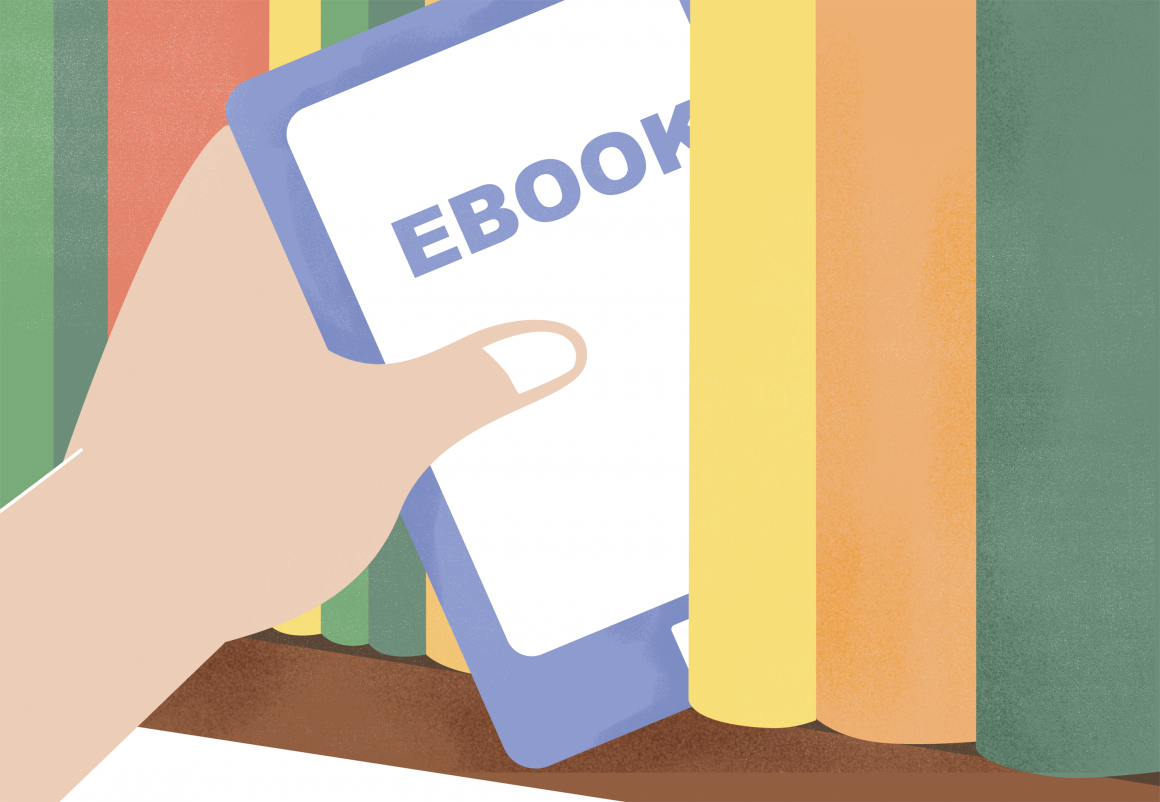
E-books enrich the role of libraries as community centres
By Sweta Babladi, March 26 2024—
Throughout much of North America today, it is increasingly difficult to access higher education and learning resources without access to wealth. Public libraries, and more recently, digital reading resources, have become essential to making information, learning resources and a place to build community accessible to everyone regardless of income.
Not only do public libraries support access to information free of cost, but the presence of well-funded public libraries creates a space that the general public can spend time in without the expectation of spending a single dime and even provides access to streaming services, free courses and technology. Larger libraries such as Calgary’s Central Library often host visual arts, concerts and workshops free of cost.
Nevertheless, libraries are not exempt from the overall integration of technology into our daily lives. Since the concept of the e-book was presented by Vannevar Bush in 1945, the face of digital reading has rapidly changed in the last few decades to become a preferred method of recreational and academic reading and research.
E-books are valuable for ease of accessibility to learning, and in recent decades, have replenished the traditional role of libraries to become the community centers that they are.
Particularly in the academic world, e-books are central to the enhancement of students’ education both in and out of classrooms. Many post-secondary institutions have now consolidated digital resources into a single database that is easily accessible to students. The University of Calgary’s online library and database, for instance, gives students rapid access to thousands of journals, articles and e-books that would otherwise require far more time to obtain.
With the rising popularity of e-books and digital reading resources, there have been many discussions on the negative ramifications of e-books on libraries. One common concern is that e-books will render libraries and physical books irrelevant.
However, the continued prevalence of libraries in our society and the general consensus that they are spaces that should be well-funded is an indication that e-books are not taking the limelight away from libraries, but rather turning them into a meeting spot for learning and community resources that are available to the public. Many people still prefer print books for recreational reading, and many students still find that their learning is enhanced by using physical copies of textbooks and class reading material. For instance, e-books allow for easier annotation and for students to incorporate aural and visual factors into their learning.
Resources such as the Calgary Public Library’s online reading app, “Libby,” ensure access to reading material for individuals who cannot easily commute to libraries while maintaining the library’s jurisdiction of the books in the system, thereby protecting authors and publishers. With the advance of e-books, audiobooks on such platforms have also become easier to access.
By making use of the demand for digital resources, libraries have drawn more people to make use of them for their various learning and recreational needs.
This article is a part of our Opinions section and does not necessarily reflect the views of the Gauntlet editorial board.
